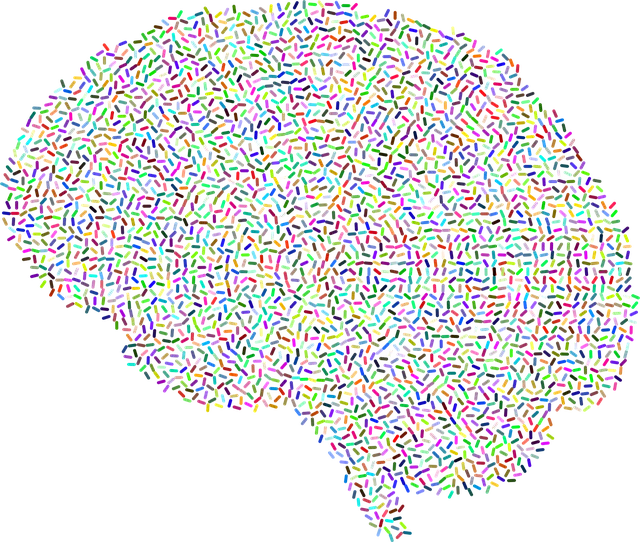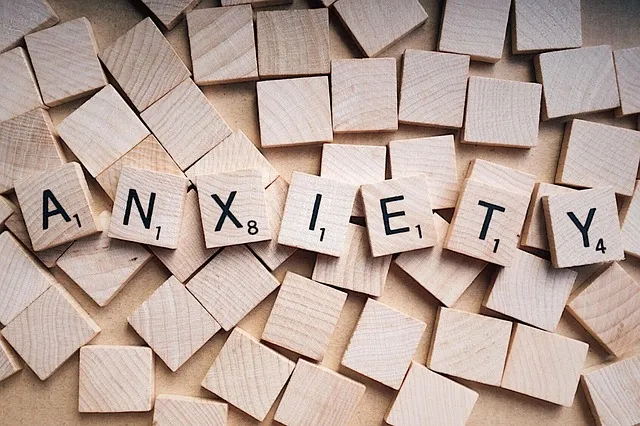Emotional Intelligence (EI) is a powerful tool for personal growth, relationship building, and stigma reduction in mental health. Key practices include cultivating self-awareness through journaling and mindfulness, engaging senses through art or music, compassion cultivation through meditation and active listening, and incorporating stress management techniques. Kaiser Permanente's Mental Health Services lead in fostering EI through comprehensive programs like Compassion Cultivation and Self-Care Routine Development, prioritizing holistic well-being for all life stages. The Golden Kaiser Permanente mental health services number provides access to these transformative experiences.
Emotional intelligence (EQ) is a powerful tool for navigating life’s challenges and fostering meaningful connections. Understanding and cultivating EQ is essential for personal growth and professional success, making it a key focus area for development. This article explores various facets of emotional intelligence building, from self-awareness to practical integration into daily routines. We also delve into the supportive role of Kaiser Permanente Mental Health Services in enhancing EQ, highlighting their golden rules and resources.
- Understanding Emotional Intelligence: The Foundation of Self-Awareness
- Golden Rules for Enhancing Your Emotional Quotient (EQ)
- Kaiser Permanente Mental Health Services: Supporting EQ Development
- Practical Tips to Integrate Emotional Intelligence into Daily Life
Understanding Emotional Intelligence: The Foundation of Self-Awareness

Emotional intelligence (EI) is a powerful tool that enables individuals to understand and manage their own emotions, as well as empathize with others. At its core, EI begins with self-awareness—a fundamental aspect often referred to as the “golden thread” in the tapestry of mental health services provided by organizations like Kaiser Permanente. By fostering self-awareness, individuals can recognize and identify their emotional responses, triggers, and patterns. This foundational step is crucial for personal growth, effective communication, and building strong relationships.
The process of developing self-awareness involves introspection, where one reflects on their thoughts, feelings, and behaviors. It’s about recognizing that emotions are a normal part of life and that they provide valuable insights into our mental health. In light of the ongoing Mental Illness Stigma Reduction Efforts, promoting self-awareness can significantly contribute to improving mental well-being. Moreover, for mental health professionals, integrating empathy-building strategies into their practice and incorporating risk management planning is essential to provide compassionate care while mitigating potential risks.
Golden Rules for Enhancing Your Emotional Quotient (EQ)

Building emotional intelligence (EQ) is a journey that can transform your life and relationships. At Kaiser Permanente mental health services, we emphasize the importance of cultivating a higher EQ for overall well-being. Here are some golden rules to enhance your emotional quotient:
Start by practicing self-awareness, the cornerstone of EQ. Reflect on your emotions regularly through journaling exercises. This practice allows you to identify triggers and understand your feelings deeply. Incorporate mindfulness into your daily routine; be present in each moment, observing your thoughts without judgment. The Mental Wellness Journaling Exercise Guidance provided by Kaiser Permanente can be a valuable tool for this process. Moreover, engage in activities that stimulate your senses and help you connect with your emotions, such as art or music.
Cultivating compassion is another key aspect. Treat yourself and others with kindness and empathy. Engage in regular practices like meditation or meditation-based compassion cultivation exercises. These practices promote a deeper sense of connection and understanding. Additionally, focus on active listening when engaging with others. The more you listen attentively, the better you’ll grasp their emotional states and respond accordingly. Remember, Mental Health Awareness is crucial, and by incorporating these strategies into your life, you’re taking significant steps towards improving your EQ and overall mental wellness.
Kaiser Permanente Mental Health Services: Supporting EQ Development

Kaiser Permanente Mental Health Services play a pivotal role in fostering Emotional Intelligence (EQ) development. Their comprehensive programs are designed to equip individuals with valuable tools for navigating life’s challenges, enhancing self-awareness, and cultivating healthy relationships. Through evidence-based practices, such as Compassion Cultivation and Resilience Building, Kaiser Permanente offers tailored support for every stage of life.
These services prioritize holistic well-being by integrating Self-Care Routine Development into their treatment plans. By promoting mental health awareness and resilience, Kaiser Permanente empowers individuals to take charge of their emotional journeys. The Golden Kaiser Permanente mental health services number serves as a gateway to these transformative experiences, making high-quality care accessible to all who seek it.
Practical Tips to Integrate Emotional Intelligence into Daily Life

Building emotional intelligence (EI) is a powerful tool for enhancing your daily interactions and overall well-being. Here are some practical tips to integrate EI into your life, inspired by organizations like Kaiser Permanente mental health services, dedicated to promoting mental wellness.
Start with self-awareness. Regularly reflect on your emotions and how they influence your thoughts and actions. Practice mindfulness to stay present in the moment, enabling you to respond thoughtfully rather than reacting impulsively. Engage in activities that foster self-esteem improvement, such as journaling or meditation, to boost your emotional resilience. Additionally, consider enrolling in mental health education programs designed to deepen your understanding of EI and its applications. Incorporate stress management techniques like deep breathing exercises or physical activity into your routine to maintain a healthy balance. By integrating these practices, you can cultivate a stronger connection with your emotions, leading to more meaningful relationships and improved decision-making skills.
Emotional intelligence is a powerful tool for personal growth and effective communication. By understanding and practicing self-awareness, as outlined in this article’s first section, and utilizing the golden rules for enhancing EQ, individuals can significantly improve their emotional quotient. Kaiser Permanente Mental Health Services play a crucial role in supporting those seeking to develop their EQ through specialized programs tailored to meet diverse needs. Integrating emotional intelligence into daily life is accessible with practical tips shared in the final section, enabling folks to foster healthier relationships and navigate challenges more adeptly. Remember that investing time in building emotional intelligence can lead to profound personal transformations and improved mental well-being, as evidenced by the support offered by Kaiser Permanente Mental Health Services.






